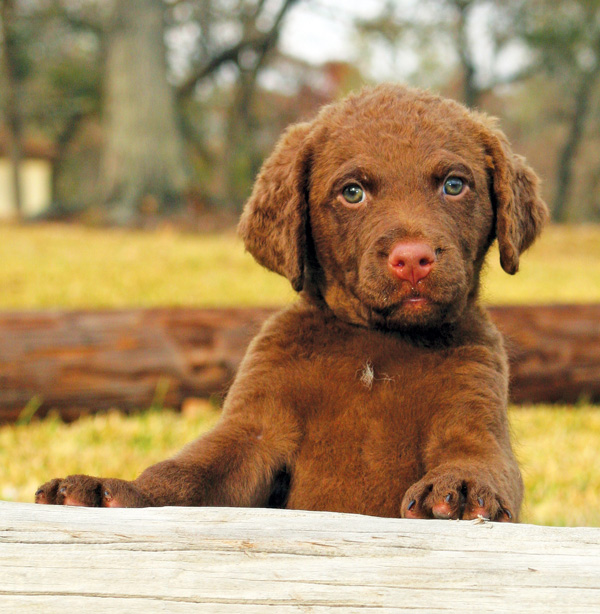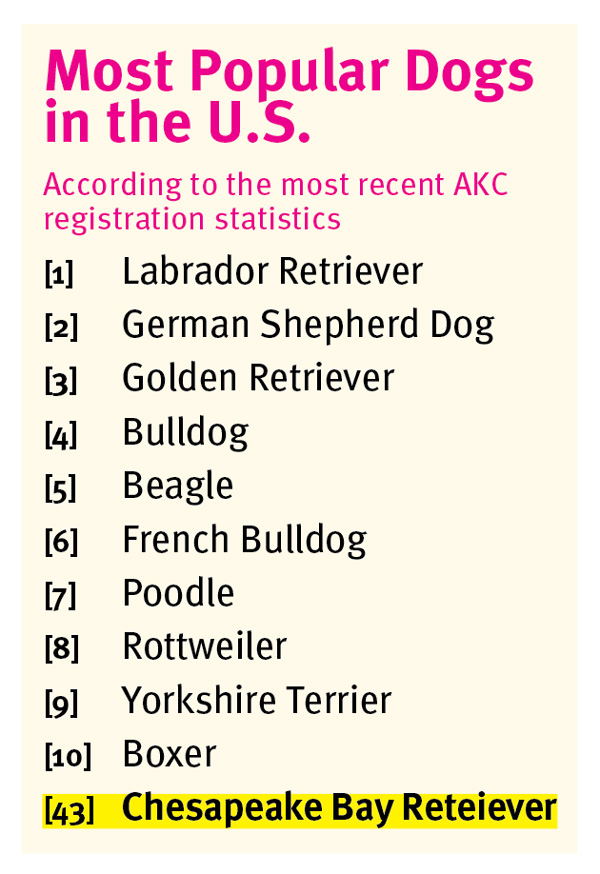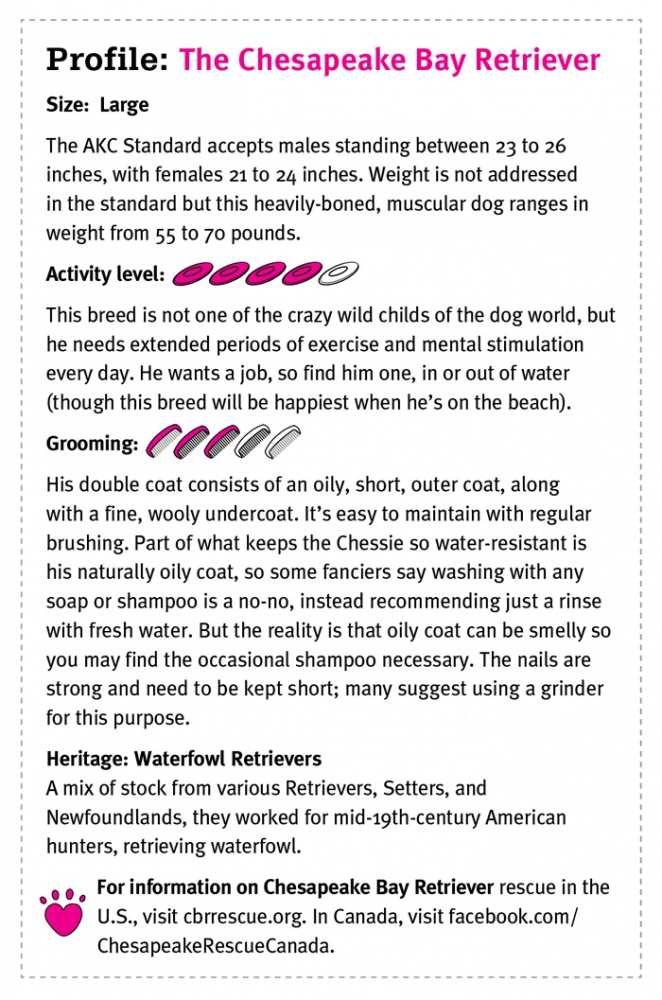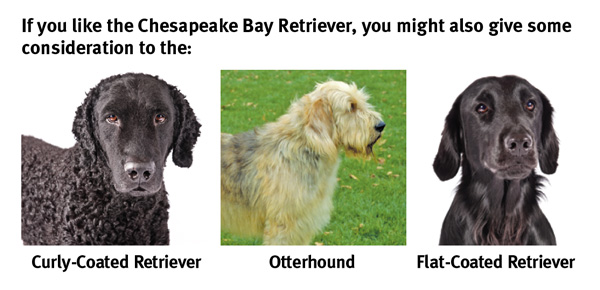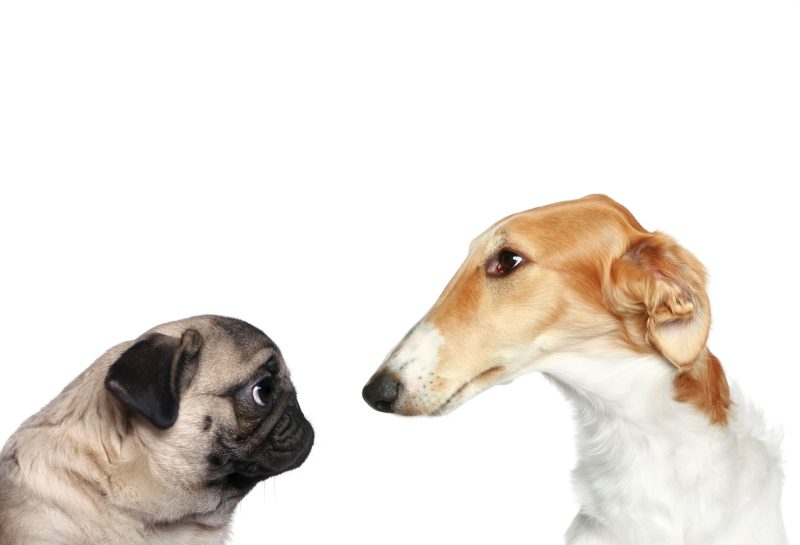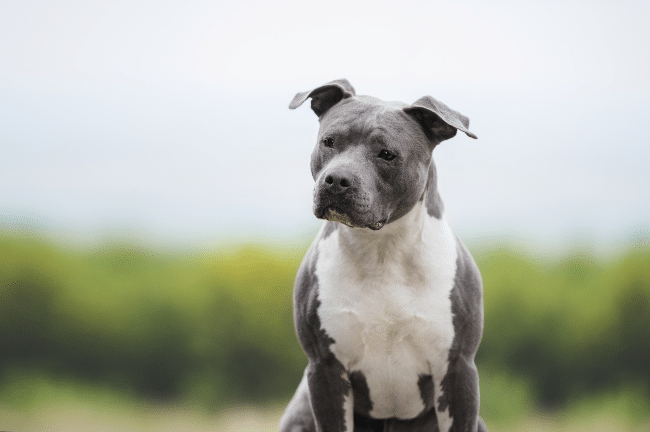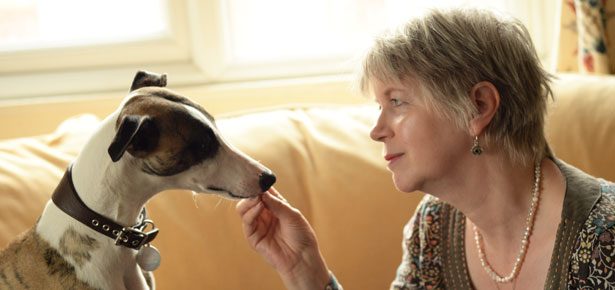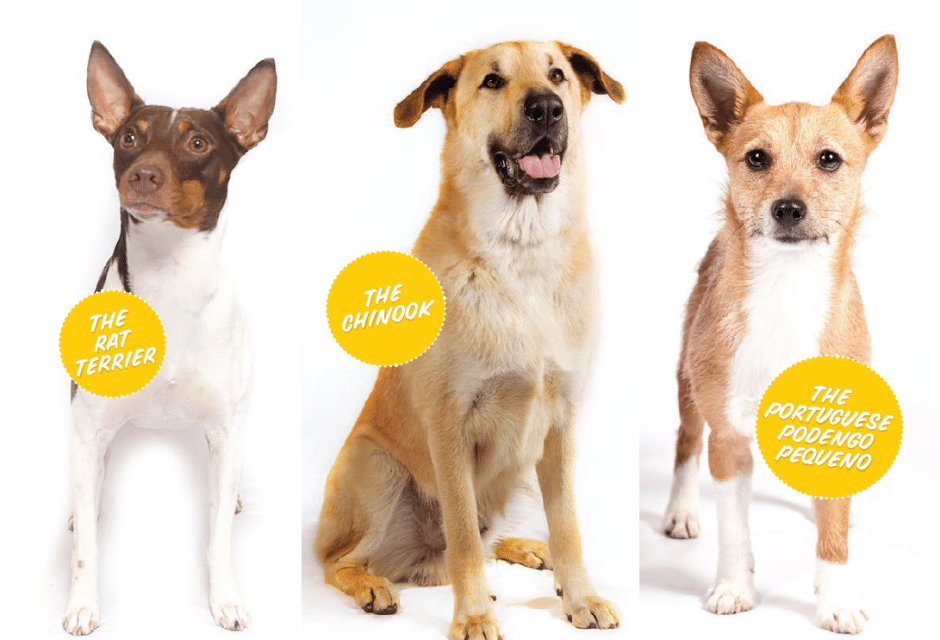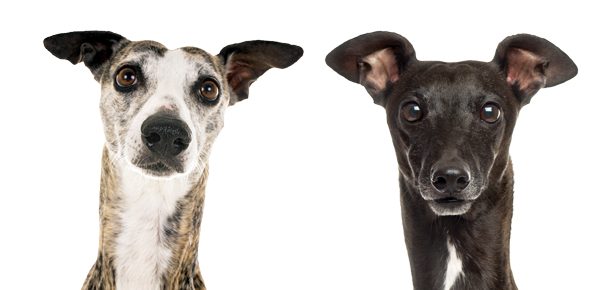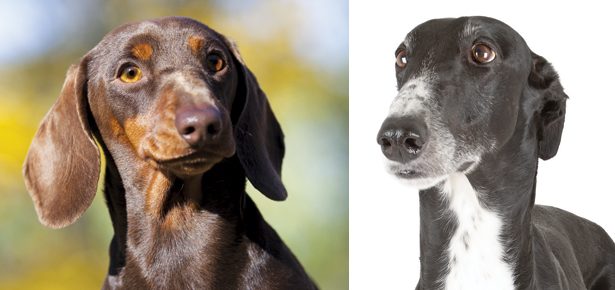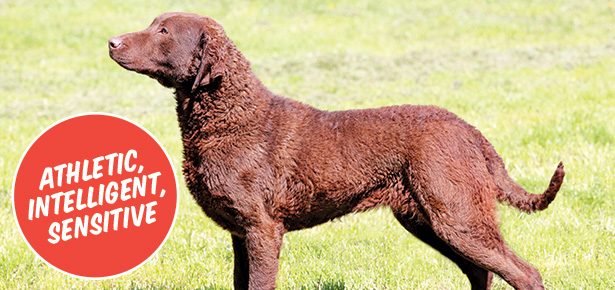
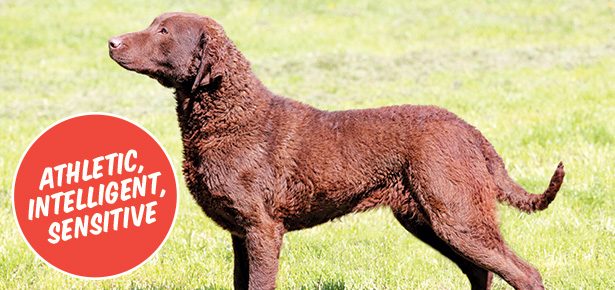
The Chesapeake Bay Retriever
Tough and tenacious, the Chessie is a retriever with a twist!
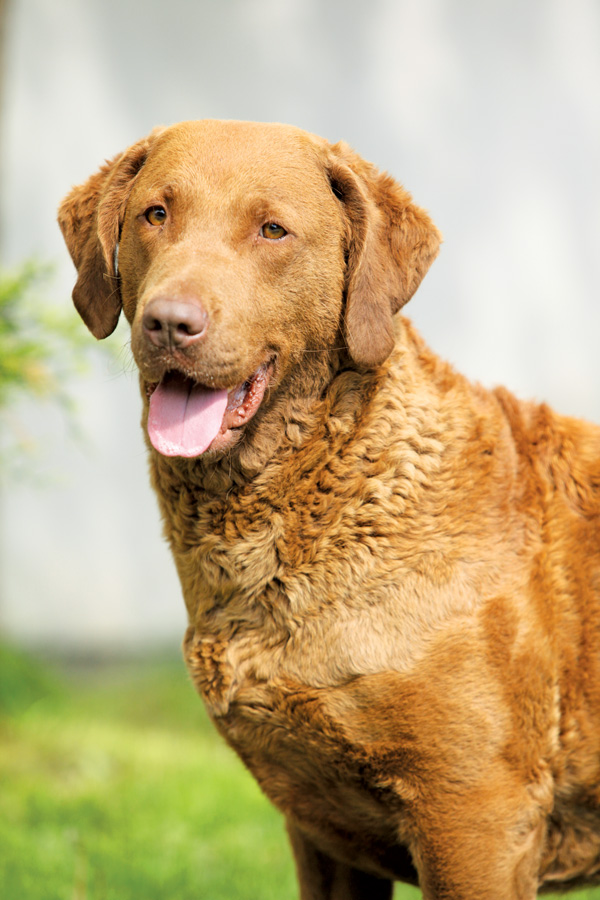
You may not have heard of him, but the Chesapeake Bay Retriever is anything but new to the dog scene. His roots are well-established, and his origins are downright romantic.
It was 1807 when a British ship wrecked off the coast of Maryland in the frigid waters of the Eastern Seaboard. Among the rescued were two dogs named Sailor and Canton. Early reports were that the dogs were Newfoundlands, but that’s become the subject of some debate over the years. Some contend that Sailor and Canton were Lesser Newfoundlands, or St. John’s Water Dogs, a breed now extinct. Regardless, the two shipwreck survivors were instant celebrities—both for surviving, as well as for their soon-apparent remarkable adeptness at retrieving waterfowl. The dogs caught the eyes of local enthusiasts, who bred them to hounds, setters, water spaniels, and other retrievers. The results of those breedings served as the beginnings of today’s Chesapeake Bay Retriever. Come 1878, the first Chesapeake Bay Retriever, named Sunday, was officially recognized by the American Kennel Club (AKC).
Perhaps not surprising given their survivor heritage, the breed is a remarkably tough one. The Chessie is prepared to take on the icy waters of the Atlantic and capable of retrieving upwards of 200 waterfowl a day.
According to AKC standards, Chessie males stand between 23 to 26 inches, with females 21 to 24 inches. Proportions are emphasized of course, but nothing is given more attention in the standard than the coat, which is thick, short, and accepted in eight colours but with no variations. The Chessie has webbed toes which give him some advantage when swimming. His eyes are bright and clear with an amber hue—yes, yes, we call this dreamy in dog-talk.
Physically, the Chessie is arguably the most tank-like of the gun dogs. He was bred to work in an incredibly hostile and unforgiving environment, and it shows. But, let’s be clear: this breed is tough enough to withstand almost anything Mother Nature can throw at him—but this is not a dog who will thrive as an outsider. Though physically tough as nails, the Chessie brings a sensitive soul to the table, and is very devoted to his family, so make way for that big, beautiful Chessie in your home or find another breed!
This brings us to the subject of temperament, and the Chessie is certainly an interesting case. He’s a dog with a mind of his own—assertive and confident, but with a soft side. The best way to train a Chessie is with early socialization and positive reinforcement. These dogs bond intently with their loved ones and even a harsh look or word can be hurtful. Chessies are smart, biddable, and eager to please their loved ones—pretty much a dream for those seeking a dog who can be taught good manners.
The Chessie is an “up for anything” dog—especially if it involves physical or mental exertion. He’ll thrive if you engage him in field trials, hunt tests, agility, tracking, obedience, or confirmation. He wants to work and he wants to please. Talk about a winning combination.
One thing is for sure, this is a working dog, born and bred, through and through. The Chessie wants to work. For those in search of “just” a companion, this is not the breed. The Chessie does love his people and will take in as much dotage as they can offer—but he’ll be missing something if he doesn’t have a job. This breed needs to be busy—runs, hunts, walks, plays… whatever, so long as he’s kept engaged.
The Chessie is downright aloof if you compare him with many Retriever breeds. He’s not a Velcro dog—the kind who constantly reminds you how much he loooooves you. That’s not his style. He’ll almost always be close by, and to a degree he’ll be on guard for you, but mostly, he will simply be with you. Loving you, giving you space, and asking for it in return. For some, and I won’t lie—I’m one—that sounds like a dream.
Rest assured, when you’re ready to get a move on, your Chessie will be by your side. He’ll be right there with you, up for the next big adventure.
Shedding and ‘eau du chien’ are things you may just have to learn to accept about the breed. The Chessie loves being in the water and that oily coat is built for it. But it can be a bit… smelly. As for shedding, at least once a year, plan on some pretty epic shedding. Even with regular brushing, it’s inevitable. Cheap-o vacuums need not apply at the homes where Chessies run the show.
So, is the Chessie the right dog for you? Let me put it to you as simply as I can: If you love the idea of a Labrador Retriever, but can’t stop thinking about those amber eyes and that dense curly coat… then no, the Chessie is not for you.
Why? Because he’s not just a version of a Lab or a Golden or of anything, for that matter. He’s his own dog. And he’s a lot of dog. This is a sporting animal for serious animal lovers. The best guardian for a Chessie is the one who gets him—a fellow sportsman or outdoor enthusiast who wants to dedicate the time and resources needed to giving this beautiful soul what he needs. Serious inquiries only, as the saying goes—because Chessies are special, indeed, and they deserve nothing but the best.
Join the newsletter and never miss out on dog content again!
"*" indicates required fields
By clicking the arrow, you agree to our web Terms of Use and Privacy & Cookie Policy. Easy unsubscribe links are provided in every email.
